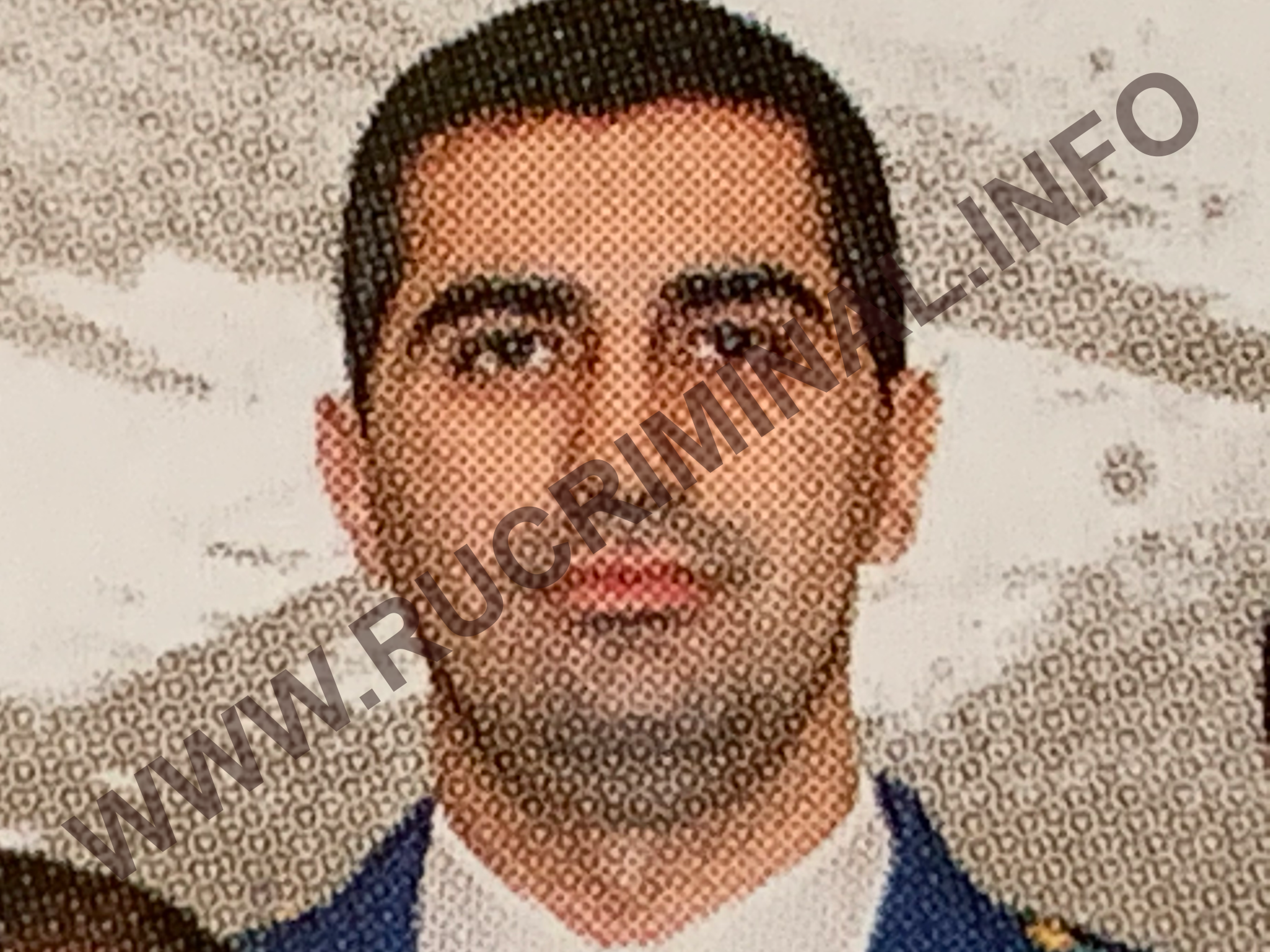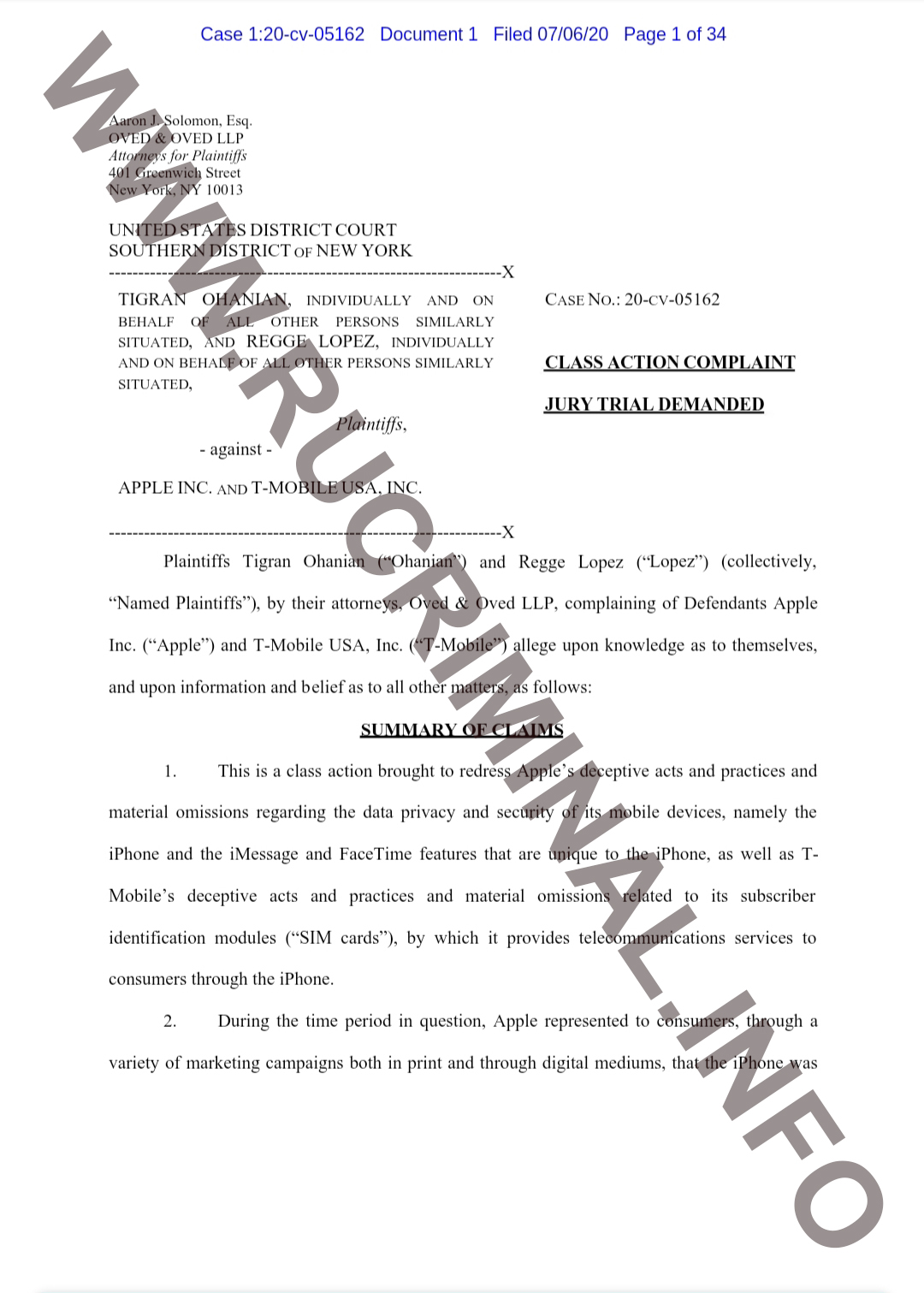The District Court of the Southern District of New York filed a lawsuit against Apple and T-Mobile in the amount of over $ 1 billion for vulnerability in iMessage and FaceTime. The news about the lawsuit has already managed to excite a number of world media and attract the attention of specialized resources on cyber security. The fact is that, according to the lawsuit, claims for an astronomical amount were claimed in connection with a leak through the fault of Apple and the mobile operator of the personal data of users through services such as iMessage and FaceTime. However, one interesting point remained “behind the scenes”. This is the identity of the plaintiff. According to Rucriminal.info sources, such is the former Grandmother’s Prosecutor of Moscow Tigran Ohanyan.

The court documents indicate the name of the plaintiff, Tigran Ohanian. However, so far no one has identified the name mentioned in the court documents with Tigran Ohanyan, a well-known prosecutor in Moscow, who has long avoided communicating with former colleagues. Quit unexpectedly for many a couple of years ago, and nothing was heard of him. Obviously, he went offline, so as not to attract too much attention. And now even closed access to all social networks.
This story is ambiguous and curious in several respects.
Firstly, it is difficult to find any common ground between the ordinary Moscow prosecutor and the topic of cyber security. Especially on a global scale. There is an abyss between them.
Secondly, it is noteworthy that for some reason Tigran Ohanyan wanted to consider the lawsuit not in the courts of his native Moscow, but by a jury in the southern district of New York. Can we assume that such times have already come when even Russian prosecutors do not believe in the impartiality of Themis of the Russian state?
Thirdly, the possibilities of the ubiquitous “Armenian lobby” leave us only to guess how things really are and what its real goals are on both sides of the Atlantic Ocean.
The problem was that for a long time, Apple services were tied to mobile phone numbers, as a result of which when using the number again, the subscriber data was available to outsiders.
According to the lawsuit, the vulnerability was discovered in iMessage back in 2011. It was then that information began to appear that stolen iPhones received messages in iMessage addressed to the real owners. The problem remained, despite all the measures taken by the owners - changing the account number and Apple ID and remotely clearing the iPhone from content using iCloud security tools, Securitylab reports.
According to the plaintiffs, the problem was how Apple handled device identifiers - a protocol that delivers messages to iMessage to the right users.
“Specifically, when an iPhone user stopped using a SIM card, and a service provider like T-Mobile reused the phone number associated with this SIM card, the previous owner of the SIM card associated with this number still received iMessage and FaceTime on his iPhone messages destined for the new owner of this number, ”the statement said.

Roman Trushkin
To be continued






